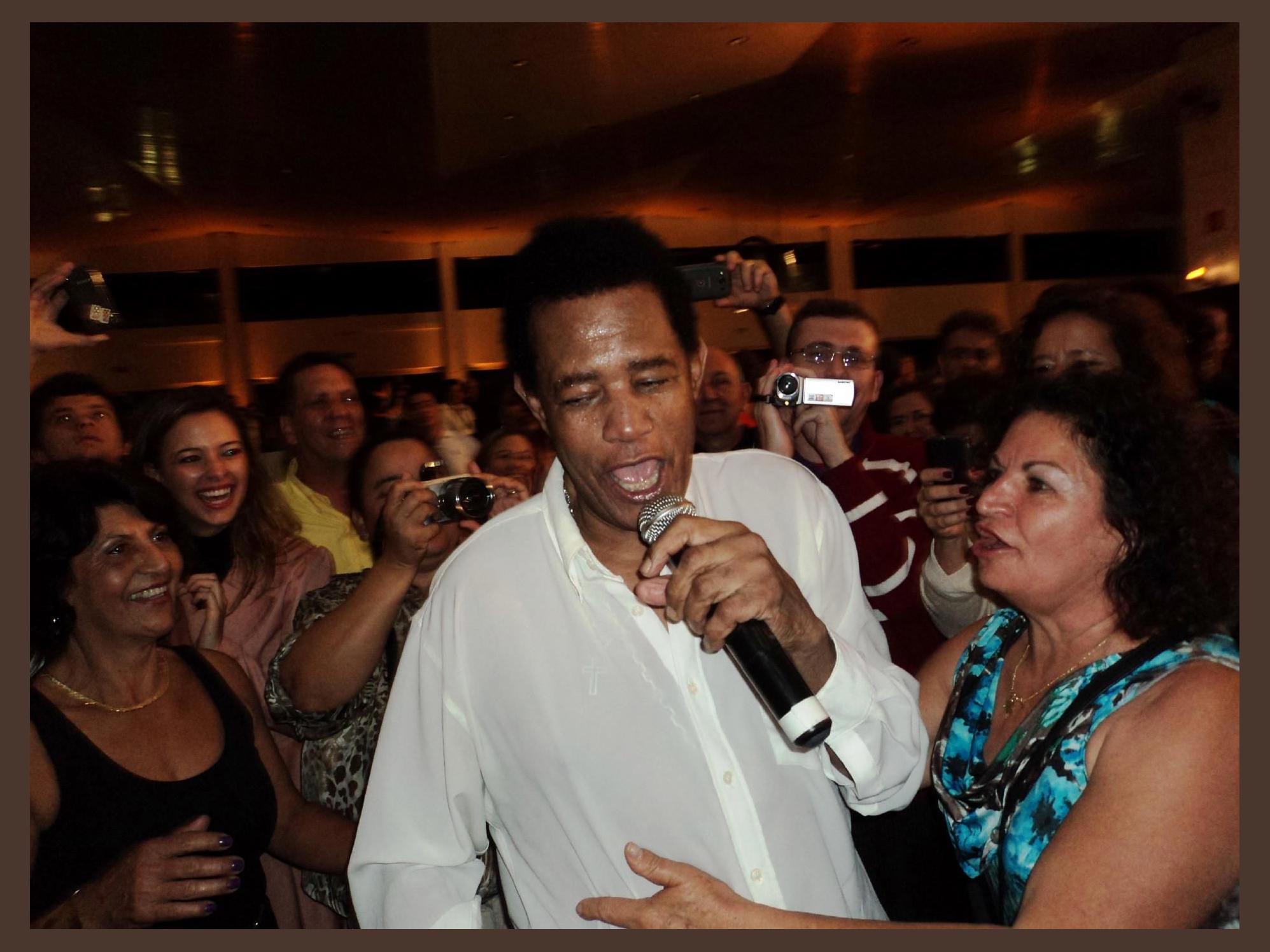 Jair Rodrigues
Jair Rodrigues
Jair Rodrigues: The Maestro of Brazilian Samba
Early Life and Musical Beginnings:
Born in Bahia, Brazil, in 1939, Jair Rodrigues immersed himself in music from a young age. Inspired by the vibrant rhythms of samba, he honed his skills as a singer and percussionist, captivating audiences with his infectious energy and soulful voice.
Rise to Fame:
In the mid-1960s, Rodrigues joined the legendary samba group Os Originais do Samba. Their groundbreaking album, "Deixa Isso Pra Lá," featuring the iconic title track, propelled the band to national fame. Rodrigues's charismatic stage presence and effortless vocals became synonymous with the golden age of Brazilian samba.
Musical Collaborations:
Throughout his illustrious career, Rodrigues collaborated with a diverse array of renowned musicians. He shared the stage with João Gilberto, Vinicius de Moraes, and Elis Regina, enriching Brazilian music with his unique blend of samba, bossa nova, and jazz.
Challenges and Controversies:
Despite his extraordinary talent, Rodrigues faced challenges and controversies. In the 1970s, he was unjustly accused of drug possession, leading to a brief imprisonment. However, he persevered through adversity, continuing to produce remarkable music that resonated with his fans.
Discography:
Jair Rodrigues's prolific discography spans over five decades, showcasing the evolution of his musical style. Notable albums include:
* "Deixa Isso Pra Lá" (1964)
* "Samba, Meu Amor" (1970)
* "Jair Rodrigues Canta Jorge Amado" (1975)
* "Luz do Samba" (1990)
* "50 Anos de Carreira" (2013)
Members:
Os Originais do Samba, the group that launched Jair Rodrigues's career, featured several talented musicians:
* Jair Rodrigues (vocals)
* Wilson das Neves (cavaquinho)
* Jorge Aragão (tambourine)
* Paulinho da Costa (drums)
* Lula Queiroga (bass)
Legacy:
Jair Rodrigues passed away in 2014, leaving an indelible mark on Brazilian music. His infectious rhythms, soulful vocals, and unwavering passion for samba continue to inspire generations of musicians and fans alike. As a true maestro of Brazilian music, his legacy lives on through his timeless songs and the indelible impact he made on the cultural landscape.
Early Life and Musical Beginnings:
Born in Bahia, Brazil, in 1939, Jair Rodrigues immersed himself in music from a young age. Inspired by the vibrant rhythms of samba, he honed his skills as a singer and percussionist, captivating audiences with his infectious energy and soulful voice.
Rise to Fame:
In the mid-1960s, Rodrigues joined the legendary samba group Os Originais do Samba. Their groundbreaking album, "Deixa Isso Pra Lá," featuring the iconic title track, propelled the band to national fame. Rodrigues's charismatic stage presence and effortless vocals became synonymous with the golden age of Brazilian samba.
Musical Collaborations:
Throughout his illustrious career, Rodrigues collaborated with a diverse array of renowned musicians. He shared the stage with João Gilberto, Vinicius de Moraes, and Elis Regina, enriching Brazilian music with his unique blend of samba, bossa nova, and jazz.
Challenges and Controversies:
Despite his extraordinary talent, Rodrigues faced challenges and controversies. In the 1970s, he was unjustly accused of drug possession, leading to a brief imprisonment. However, he persevered through adversity, continuing to produce remarkable music that resonated with his fans.
Discography:
Jair Rodrigues's prolific discography spans over five decades, showcasing the evolution of his musical style. Notable albums include:
* "Deixa Isso Pra Lá" (1964)
* "Samba, Meu Amor" (1970)
* "Jair Rodrigues Canta Jorge Amado" (1975)
* "Luz do Samba" (1990)
* "50 Anos de Carreira" (2013)
Members:
Os Originais do Samba, the group that launched Jair Rodrigues's career, featured several talented musicians:
* Jair Rodrigues (vocals)
* Wilson das Neves (cavaquinho)
* Jorge Aragão (tambourine)
* Paulinho da Costa (drums)
* Lula Queiroga (bass)
Legacy:
Jair Rodrigues passed away in 2014, leaving an indelible mark on Brazilian music. His infectious rhythms, soulful vocals, and unwavering passion for samba continue to inspire generations of musicians and fans alike. As a true maestro of Brazilian music, his legacy lives on through his timeless songs and the indelible impact he made on the cultural landscape.